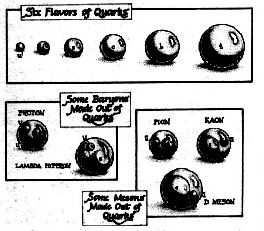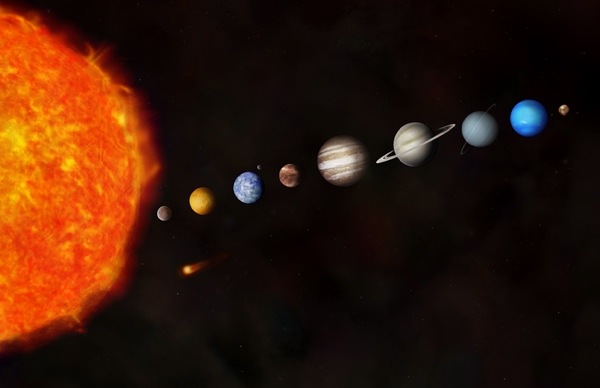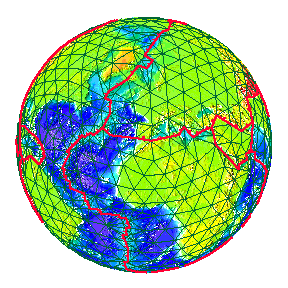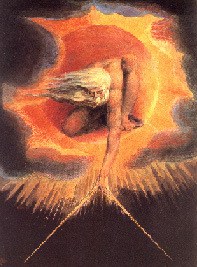

Physis
 |
|
|---|---|
or physis was the Greek
word for the material cosmos we sense and measure
as the ground of our existence. Because of the uncontrollable qualities of physical reality any attempt to predict–the physical behavior or material
essence of this tangible and hidden facets of existence are fraught with errors, deceptions and partial explanations. |
|
| This view of the Ganges River in India at dawn in the holy city of Varanasi (Benares) suggests that the Greeks were not alone in their quest to understand, predict, measure and examine nature. Hindu mathematicians and Chinese astronomers recorded the accurate movement of celestial bodies for the better part of a thousand years. | |
x |
The enduring qualities of material existence were examined by experts. In the Greek city of Miletus in Ionia these thinkers who examined nature were referred to by Plato and Aristotle as: physikoi, the natural philosophers or philosophers of nature. Among them was Thales who conceived of the primordial origin of the cosmic regularity sensed my us in the universe was the primary element of water.
F ire,
water, earth and air emerged from among the ideas discussed by the fysikoi
, or physikoi as the four elements that combine to form the sensory reality
of the material world.
ire,
water, earth and air emerged from among the ideas discussed by the fysikoi
, or physikoi as the four elements that combine to form the sensory reality
of the material world.
Material for the Greeks was an underlying substance common to all, while others in Greek thought argued that only forms have existence and what we perceive are mere reflections of eternal, invariable and transcendent things. There were also Greek thinkers who argued, instead that, as Parmenides asserted, only ideas apprehended by the mind have true reality.
Science incorporates each of these ways of distinguishing reality from fantasy by the following practices:
|
practices |
meaning |
radis,
root word |
implications |
|---|---|---|---|
|
rationality |
reason |
ratio |
logical
& understood |
|
empiricism |
experiment |
empirical |
refutable
& tested |
|
heuristics |
discovery |
eureka |
intuitive
& provable |
 Physics,
physician, and physiology all stem from this same root word: fysis.
By the time of Heraclitus (BCE 234) this word Physis, was the equivalent
of our idea of nature. Nature here referred to the indestructible, elemental,
immortal totality of the cosmos -- which Plato said was a living being. In the
Greek debate as to the exact meaning of physis
is a revealing paradox in our relationship to our surroundings.
Physics,
physician, and physiology all stem from this same root word: fysis.
By the time of Heraclitus (BCE 234) this word Physis, was the equivalent
of our idea of nature. Nature here referred to the indestructible, elemental,
immortal totality of the cosmos -- which Plato said was a living being. In the
Greek debate as to the exact meaning of physis
is a revealing paradox in our relationship to our surroundings.
Three distinct -- yet related and tightly connected, meanings emerged from the early arguments of the philosophers from the time of Thales to the death of Ptolemy. First was the idea of growth and the process referred to as genesis for the origins of life. Secondly, it referred to the primordial material: arche, arche, in Greek, out of which the perceivable universe is crafted. Third the word referred to the internal principle of organization that makes things function according to a process. Some argued that nature referred to the organizational patterns inherent in all things. Hercalitus and Democritus argued that nature referred to the "structure of things."
The new Hubble view of the cosmos, a composite map of the universe:
Celestial movements and keen observation account for this apparent order of things; hence the importance of physical knowledge in relation to the other ideas is of paramount concern among diverse and across numerous ancient cultures, From the distillation of their observations since the Medieval and later periods, today we cobble together recent discoveries with ancient preconceptions of the movement of the sun, the moon and the fixed stars in the heavens, as we design and then rationally redesign our worldview.
All the features of the Earth are depicted on this German diagram of the proportional sizes of the types of terrain seen around the world in the 18th and 19th centuries. [press the photo for enraged details of the features and landscape types].
The task of the physical sciences is to reveal the order, periodicity, form, function, structural dynamics, and inherent meaning of actual material existence that is both sensed and beyond our senses (weak, strong and electromagnetic forces) of the physical universe wherein we dwell as the curious creature capable of creating stories about who, what and where we are in the cosmos.
Press here to see more on this subject
Nature, an Index to other related pages
Vocabulary | WEAL acronym | Writing | World view | Z-A contents of this site
Society | Dimension | Genetics Index | Geology | Global Warming | Nature | Population | Science Index
Technology index
landscape index
words index
photograph index